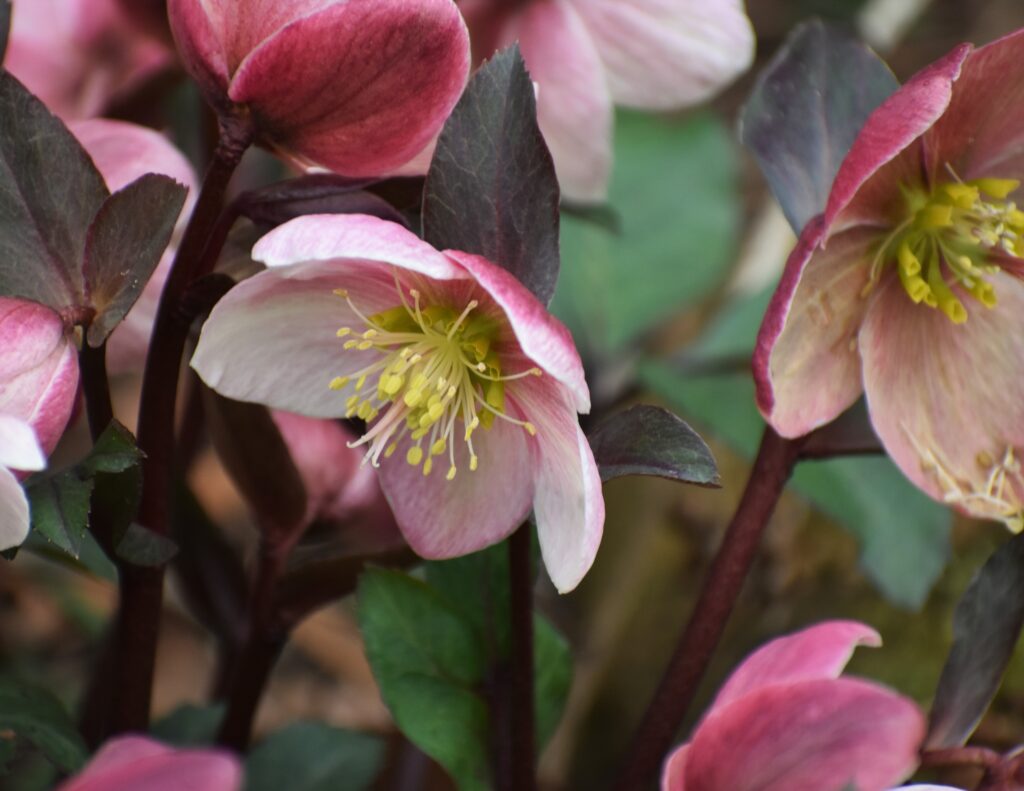💦🌷 Dear March – Come in 🌷💦
Dear March – Come in
How glad I am –
I hoped for you before –
Put down your Hat –
You must have walked –
How out of Breath you are –
Dear March, how are you, and the Rest –
Did you leave Nature well –
Oh March, Come right upstairs with me –
I have so much to tell –
I got your Letter, and the Birds –
The Maples never knew that you were coming –
I declare – how Red their Faces grew –
But March, forgive me –
And all those Hills you left for me to Hue –
There was no Purple suitable –
You took it all with you –
Who knocks? That April –
Lock the Door –
I will not be pursued –
He stayed away a Year to call
When I am occupied –
But trifles look so trivial
As soon as you have come
That blame is just as dear as Praise
And Praise as mere as Blame
Emily Dickinson
🌸 Hellebore in the Atlanta Gardens 🌸
One of my plant patches that will be heading to the farm woodlands are my beloved, Hellebores.
Hellobores are plants of mature woodland, wherever light levels allow and woodland edge habitats. 🌳
They were considered an oracle flower in Medieval Europe, with 12 buds being put into water on Christmas night, each one representing a month, so that the next morning the open buds would predict good weather, the closed bad.
The species best known to our ancestors, Helleborus niger (Christmas Rose), was used in early modern Europe as a treatment for a variety of conditions, overdosing however could be lethal. It had many mythological associations, particularly with the curing of mental illness. (Do not work with Hellebore on your own.)
Greek collectors were said to have not dug the plant up without first circling it with a sword, which reciting prayers to the gods.
According to German botanist, Otto Brunfels (1488-1534), hellebores were, even in his day, well known in gardens, rich to poor. In the mid-19th century, breeders in Germany began to create hybrids.
Yet, interest in breeding and in the plant slumped during the 1920s and much was lost and destroyed in World War II. It took a postwar English grower Helen Ballard (1908-1955) who taught herself to read German to revive the plant in Britain. 🌸

